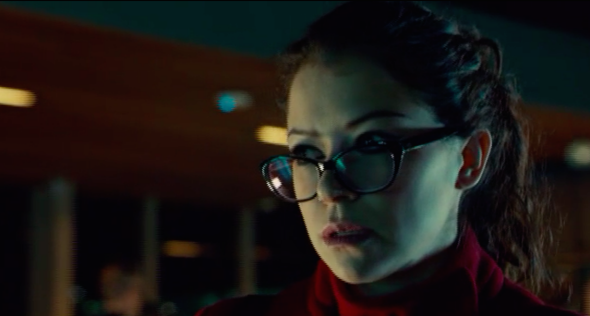For many, the artistic success of Orphan Black is due almost entirely to incredible actress Tatiana Maslany, who plays several different characters on the BBC America series about a secret cloning project gone awry. Thanks largely to Maslany’s performance, many critics praise the show while nonetheless considering it a slightly silly affair. Last week in Slate, for instance, Willa Paskin described Maslany’s performance as “more sophisticated than everything else around it,” and that take on the show is pretty widely shared.
It’s not wrong: Maslany is amazing, and the show undeniably has a goofy quality. But the first episode of Season 2, which aired over the weekend, suggests that the series may begin to address more directly some of the serious questions that have been lurking around the edges of the show up to this point.
Season 1 spent much of its time carving out specific identities for each of the clones, as small-time crook Sarah, suburban housewife Alison, and scientist nerd Cosima formed an alliance to work against the Neolutionists (a fringe scientist group) and the Proletheans (a fringe religious group). By the end of the season they had all become fully realized characters with different needs, and the show began to invoke the complex debates that their existence implies. After discovering that Dr. Leekie, the face of the Neolutionist movement, had patented the clones, Cosima tells Sarah, “We’re property, our bodies, our biology, everything we are, everything we become belongs to them.”
As Season 2 opens, the clones are trying to gain their autonomy, and are willing to assert themselves in any way possible in order to do so. At one point in the premiere, Sarah angrily tells Rachel, a clone who is working with the Neolutionists, “Me and Kira are not your bloody subjects.” Later, Cosima, who is also a PhD biology student, insists that her blood samples must not fall into the hands of Dr. Leekie. “I do my own research first. This is my biology, it’s my decision,” she insists. What was mostly subtext in Season 1 is reaching the surface.
This fight for autonomy raises questions that look to the future, one in which human cloning is a reality, as co-creator Graeme Manson has discussed. (“The legal ramifications have yet to be fleshed out and tested,” he said in a recent interview.) But more striking, perhaps, is the way the show’s plot calls to mind debates we’ve been having for much longer about what it means for women to have control over their own bodies. Sarah, so far as we know, is the only clone who has produced a biological child, and Season 2 has been set up as a quest to find and keep her daughter safe now that Sarah knows she and the other clones have been patented. From the beginning, her daughter has been the single driving force behind every decision she makes, but she may not have any rights to her.
And the show also engages with the recently reignited discussion of women and confidence. Is the so-called confidence gap between men and women linked to biology, or is it a matter of how boys and girls are treated as children? Can it all be chalked up to flat-out sexism and pervasive institutional barriers? As Jessica Roake has argued, the straight male characters of Orphan Black are “just big lumps whose function is to get in the way of the clones’ progress. They aggravate, bully, and push their weight around in typically macho fashion.” So the show’s take on that topic is, I think, pretty clear.
As the forces working against the clones continue to multiply in Season 2—particularly within the Proletheans—it appears that each clone’s storyline will become increasingly interwined with these issues. We learned in the finale, for instance, that it’s Alison’s own husband, Donnie—and not her now-deceased ex-friend Aynsley—who is monitoring her on Dr. Leekie’s behalf. Once she realizes this, she’ll be forced to try yet again to regain control of her adopted children (not to mention her own life). And the preview for next week’s episode suggests that Cosima will get even closer to working with the Dyad Institute, in hopes of uncovering more information about Leekie’s plans for the clones. These are promising developments—as others have noted, it’s extremely rare on television to see not just one strong example of a woman acting with a full sense of agency, but multiple, varied ones in a single series.
But what makes the show not only entertaining but fascinating is that it doesn’t just put female characters front and center—it also engages with serious problems specific to them. As new adversaries—and more complicated angles to these various debates—arise, it will be great fun to follow along and see how much deeper Manson and co-creator John Fawcett are willing to go.
